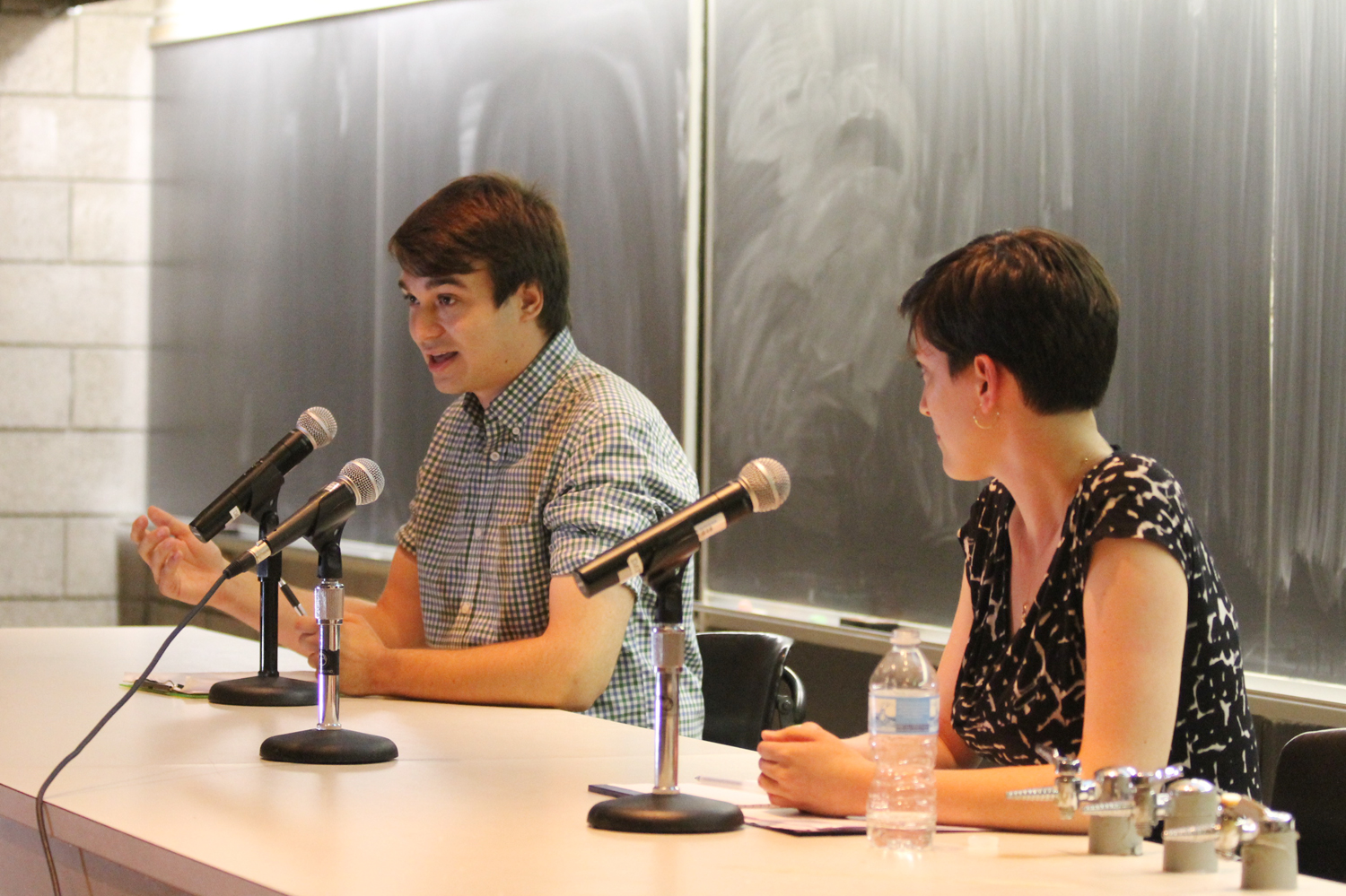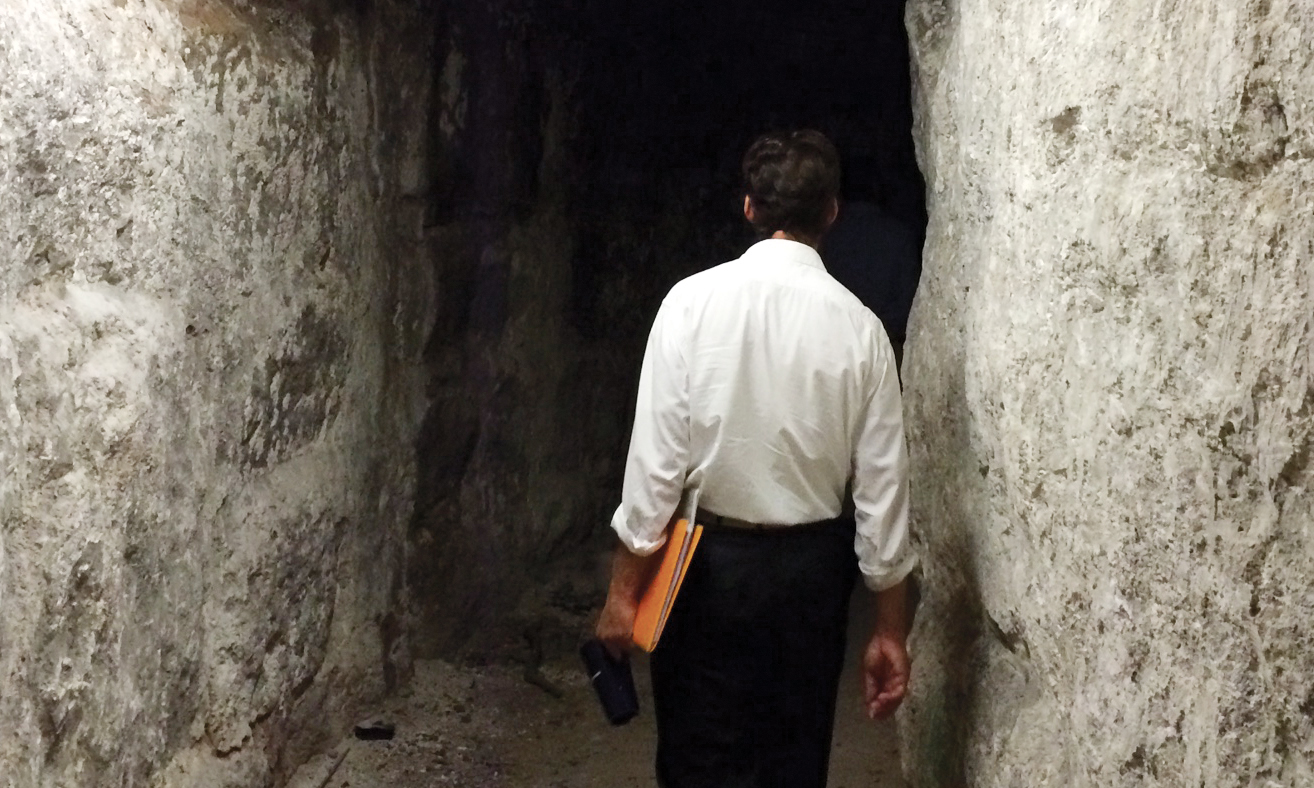Photos by Jacob Stern
WASHINGTON — Donald Trump became the 45th president of the United States Friday at noon when he took the oath of office on the steps of the Capitol building before a sea of supporters in red hats and ponchos.
In his first public address as president, Trump painted a picture of America in a state of disrepair, its great institutions broken and its people neglected and ignored, but he also promised to return the country to its former greatness.
“Americans want great schools for their children, safe neighborhoods for their families and good jobs for themselves … but for too many of our citizens, a different reality exists,” Trump said. “Mothers and children trapped in poverty in our inner cities, rusted-out factories scattered like tombstones across the landscape of our nation, an education system flush with cash but which leaves our young and beautiful students deprived of all knowledge. And the crime, and the gangs, and the drugs that have stolen too many lives and robbed our country of so much unrealized potential. This American carnage stops right here and stops right now.”
In his speech, the president promised that his inauguration would presage a transfer of power not only from one administration to another, but from Washington to the people.
For longtime Trump supporter and New York resident Mike Farino, the address reaffirmed the new president’s commitment to serving all Americans, rather than catering to the elite.
“He talked to the people,” Farino said. “He definitely is looking out for us now.”
Trump also vowed to protect the U.S. from “the ravages of other countries making our products, stealing our companies and destroying our jobs” and promised to rebuild it “with American hands and American labor.”
“From this day forward, a new vision will govern our land,” he said. “From this day forward, it’s going to be only America first, America first.”
Supporter Randy Harris spoke approvingly of the speech’s “very America-centric” rhetoric.
Trump’s swearing-in marks the end of an election cycle that is widely considered one of the most volatile and divisive in recent memory. Symptoms of this division were apparent throughout Washington on Inauguration Day. Anti-Trump protesters paraded through the streets around the Capitol, clashing both physically and verbally with Trump supporters.
. I think it’s a conscious decision that people are going to have to make,” Taylor said. “People are going to have to stretch themselves to understand other people.”
Trump’s address included several passages emphasizing the importance of unity. Trump’s assertion that all Americans, regardless of race, “bleed the same red blood of patriots” and “salute the same great American flag” elicited large cheers from the crowd.
But some in Washington, such as Julia Connolly, a sophomore at Hunter College of the City University of New York, thought the vitriol of this election cycle makes the prospect of unity over the next four years bleak.
“I think [Trump] will try to bridge divisions but I don’t think it will happen to the extent to which we want, because his dialogue has created too many divisions,” Connolly said. “I think for the first time [the election] became something more than politics and more about morals and integrity because of the rhetoric he used.”
At the end of Trump’s roughly 16-minute address, the crowd began to funnel out of the gates ringing the National Mall into downtown Washington.
Washington saw another large crowd the following day, when hundreds of thousands gathered to participate in the capital’s Women’s March.
Around 10:10 a.m., Black Lives Matter protesters chanting “go home” linked arms to form a human wall in front of an entrance to the inauguration for those with tickets to the event and shoved away police officers and others who tried to pass. They remained in this position for about another hour before marching toward the Capitol around 11:00 a.m. Many found it difficult to access certain parts of the Mall because of the protests.
Partisan divisions haunted the inauguration ceremony as well. A speech from Senate Minority Leader Chuck Schumer, D–NY, elicited boos and groans from the pro-Trump crowd. During Trump’s address, an audience member in the section of the Mall reserved for ticket holders began to shout “impeach Trump,” which prompted nearby Trump supporters to respond with calls to “lock her up.”
Norma Valdes, a Trump supporter who traveled from Washington State to Washington, D.C., was optimistic that Trump would be able to assuage these divisions over the course of his presidency and said she believed he would be “a president for all Americans.” D.C. resident Richard Taylor, who said he had not supported either candidate in the general election, placed the responsibility for unity on every American.
“I think we will [create unity]. I think it’s a conscious decision that people are going to have to make,” Taylor said. “People are going to have to stretch themselves to understand other people.”
Trump’s address included several passages emphasizing the importance of unity. Trump’s assertion that all Americans, regardless of race, “bleed the same red blood of patriots” and “salute the same great American flag” elicited large cheers from the crowd.
But some in Washington, such as Julia Connolly, a sophomore at Hunter College in New York City, thought the vitriol of this election cycle makes the prospect of unity over the next four years bleak.
“I think [Trump] will try to bridge divisions but I don’t think it will happen to the extent to which we want, because his dialogue has created too many divisions,” Connolly said. “I think for the first time [the election] became something more than politics, and more about morals and integrity because of the rhetoric he used.”
At the end of Trump’s roughly 16-minute address, the crowd began to funnel out of the gates ringing the National Mall into downtown Washington. Few protesters remained on the streets, but many are sure to return for today’s Women’s March.
The D.C. Women’s March will begin at 1:15 p.m. today.
This article was updated to reflect the version that ran in print on Jan. 23.









